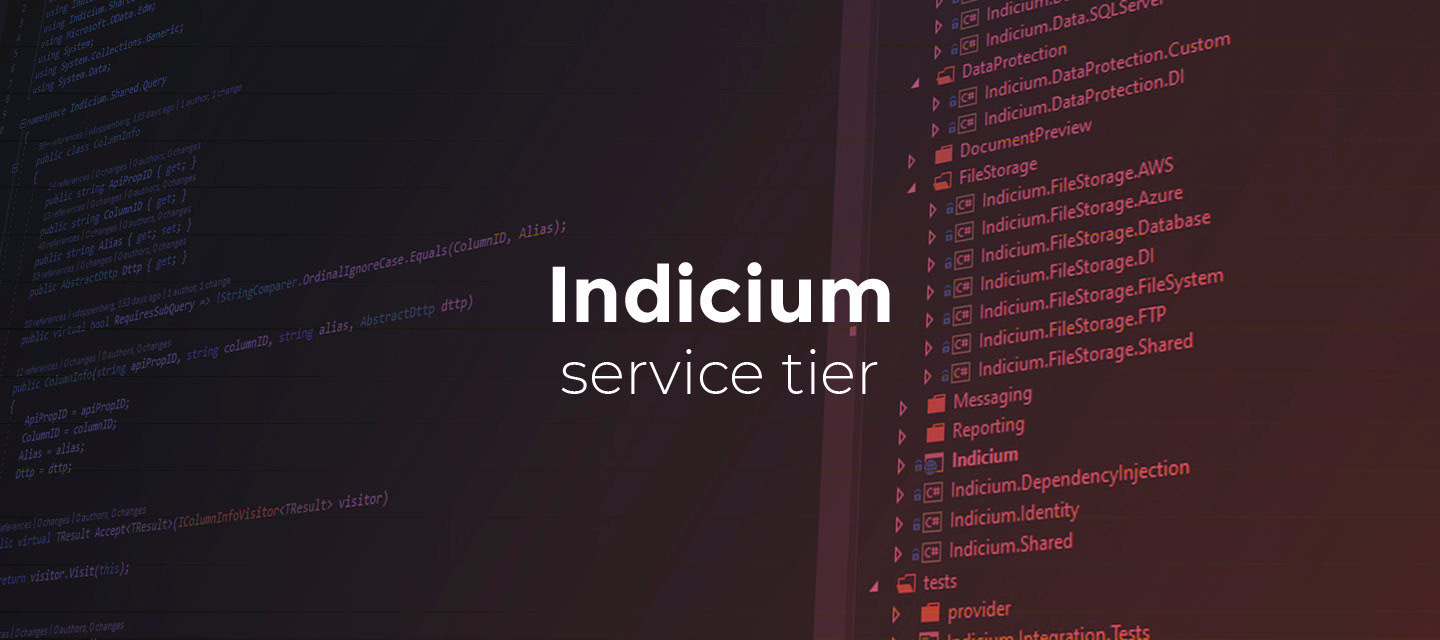Hello everyone,
In this sprint, we added support for generating DevExpress reports on .NET 6, and we have improved our support for Amazon SNS (Simple Notification Service).
You can read more about Indicium's features in the Indicium user manual.
We will keep you updated regularly about Indicium's progress.
About Indicium
Two types of the Thinkwise Indicium Application Tier are available:
-
Indicium Basic: for use with the Windows GUI and Mobile GUI. This basic version does not support, for example, system flows and OpenID.
Download Indicium Basic release 2022.2.15 here. -
Indicium: for use with the Universal GUI and via APIs. This version uses the full range of Indicium functionality.
Download Indicium release 2022.2.15 here.
Contents of this release
Indicium - New
Support for generating DevExpress reports
We have added support for generating DevExpress reports on .NET 6. This allows Indicium to generate reports on Linux. Please note:
- Reports targeting DB2 data sources are not supported.
- You must install and update the dependencies mentioned here
On Linux, Indicium will use the .NET 6 version of the DevExpress reports plugin by default. Windows will continue to use the .NET Framework 4.7.2 version by default, but you can use the .NET 6 plugin by changing the Runtime app setting to NET:
{
"Reporting": {
"DevExpress": {
"Runtime": "NET"
}
}
}
Amazon SNS (Simple Notification Service) support
As of this release, Amazon SNS can be used to call Indicium's standard APIs (for example, tasks, tables, etc.).
Until now, Amazon SNS could not call these standard APIs because while Amazon SNS sends JSON messages, it sets the Content-Type header to text/plain, instead of application/json. We have introduced a new middleware that recognizes Amazon SNS requests and changes the text/plain Content-Types to application/json, making them compatible with the Indicium APIs.
Indicium - Changed
- We have improved our error logging regarding features that are not supported on some platforms, for example, Linux. The error message now clearly indicates that this is the reason.
- We have improved Indicium's error logging in several places. The severity, content, and category of many error messages are now more accurate, and these error messages are now easier to parse for Azure Application Insights and AWS CloudWatch. Some additional improvements for AWS CloudWatch will be coming up in the next release.
- By default, Indicium only allows redirects to its own domain. For OpenID clients, it is also possible to redirect to the URLs that are allowlisted in the OpenID clients.
Finally, redirect URLs can also be allowlisted in IAM's global settings. If Indicium does not accept a redirect URL, then Indicium redirects to its own root URL. This was considered confusing, so we improved our logging to state why a redirect URL was not accepted and how to fix this.
- Indicium's import API now calls layouts and defaults with
@import_mode=1.
- We updated the description of secrets stored in AWS Secrets Manager to clarify their purpose and the implications of deleting them.
Minor fixes and tasks
- [Indicium Basic] In a group of mandatory and mutually exclusive prefilters, when the Look-up state of all filters was set to "Off hidden", Indicium did not show any result. This has been fixed. Now, if no filter is selected, all filters are combined with OR clauses into one statement.









